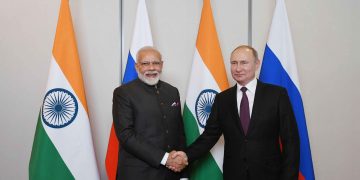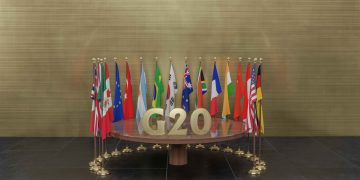On 23 May 2024, Moscow hosted a significant meeting of the Heads of BRICS Space Agencies, attended by Sergey Ryabkov, Russia’s BRICS Sherpa and Deputy Minister of Foreign Affairs. During the meeting, Yury Borisov, Director General of Roscosmos, emphasized the growing capabilities of BRICS nations, which now collectively operate over 1,200 national orbital satellites following the addition of new member countries.
Key Initiatives Proposed
Borisov introduced an initiative to develop an international system aimed at ensuring the safety of space activities. This system would be founded on an open information platform designed for the exchange of data and monitoring of near-Earth space conditions. He highlighted the need for a robust framework to address the rising number of satellites and increasing space debris.
Roscosmos previously announced the development of the ‘Milky Way’ civilian security system, which will integrate existing Russian automated warning systems for hazardous situations in space. This open platform will serve as an information hub, enabling the sharing of critical data regarding near and deep space, including alerts for potential collisions with hazardous space objects.
Expanding Data Exchange and Collaboration
In addition to man-made objects, BRICS countries plan to facilitate the exchange of data on various natural space phenomena, including solar activity, galactic radiation, and the paths of dangerous asteroids. Borisov noted that the platform would be accessible to all participants, regardless of their expertise or technical capabilities, fostering a collaborative environment for both amateur astronomers and professional space organizations.
Borisov encouraged fellow BRICS space agencies to join this initiative, outlining future options for expanding the platform’s functionalities. This includes the potential for joint projects in manned space exploration and the establishment of modules within the Russian Orbital Station to support collaborative scientific research and training for BRICS cosmonauts.
Progress on Remote Sensing and Sustainability
The meeting also addressed the expansion of joint remote sensing satellite constellations among BRICS countries. In 2023, these nations exchanged data covering more than 27 million square kilometers of Earth’s surface. Borisov proposed enhancing the BRICS orbital remote sensing capabilities through new satellites equipped with advanced imaging technologies.
The participants also considered a draft joint statement urging the global community to prevent the deployment of weapons in space and to avoid activities that could jeopardize the space environment and sustainability of space operations. Furthermore, they discussed their contributions to the final declaration of the upcoming BRICS Summit in Kazan from 22-24 October 2024, with Russia proposing the establishment of a BRICS Space Council—a proposal that generated considerable interest among attendees.
The event was managed by the Roscongress Foundation, which oversees activities related to Russia’s BRICS Chairship.





















